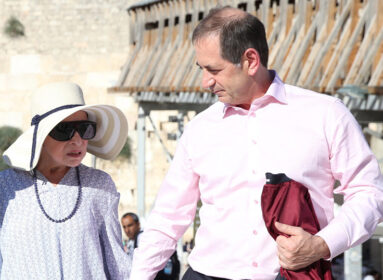
By Emily Burack
Elizabeth Wurtzel, best known for her memoir Prozac Nation, has died at age 52 after a five-year fight with breast cancer.
At the time of her diagnosis, Wurtzel wrote in Vice, “I have the BRCA gene mutation, the curse of Ashkenazi Jews – and Angelina Jolie. It means I am likely to keep getting cancer if I don’t do something to stop it, so instead of having a lumpectomy, I am having a double mastectomy with reconstruction.”
Wurtzel became an advocate for testing for the BRCA gene mutation – specifically, that insurance companies should cover BRCA testing for all Ashkenazi Jewish women, regardless of whether or not they present cancer symptoms. “I caught it fast and I acted fast, but I must have looked away: By the time of my double mastectomy, the cancer had spread to five lymph nodes,” she wrote in the New York Times in 2015.
Wurtzel was born and raised in New York City in a Jewish family. She attended the Ramaz School, a Modern Orthodox day school in New York, before attending Harvard undergrad and Yale Law School. In December 2018, she wrote about how the man she thought was her father, Donald Wurtzel, was not. Her biological father was Bob Adelman, a photographer, with whom her mother had an affair.
Her blockbuster memoir, Prozac Nation, came out in 1994 when she was only 27 years old, and detailed her struggles with depression and anti-depressants. While a student at Harvard, Wurtzel was one of the first people to go on Prozac. She originally titled the book I Hate Myself and I Want To Die, with an epilogue called “Prozac Nation,” before an editor decided the latter should be the title of the book. “I Hate Myself and I Want to Die” became the title of the prologue. Her follow-up memoirs included Bitch: In Praise of Difficult Women (published 1998) and More, Now, Again (2001).
After news of her death came out, tributes poured out on social media.
As she wrote about her cancer in 2018, “I’m not sorry about anything. I was never sorry when I said I was. Apologies are a courtesy. I love to argue. I am in it for the headache. I don’t need you to be on my side – I’m on my side.”
This is an excerpt of an article that appeared on Kveller (www.kveller.com).







 Southern New England Jewish Ledger
Southern New England Jewish Ledger















